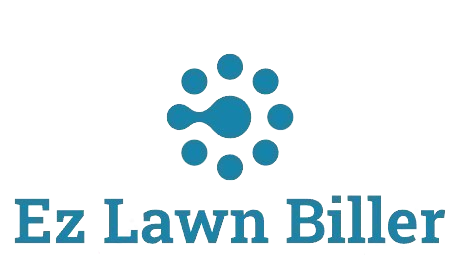The Ultimate Guide to Stay Compliant for Lawn Services
Staying compliant in the lawn care industry is crucial for ensuring the longevity and success of your business. This blog post will detail various aspects of compliance, from understanding local regulations to adopting best practices in billing and service management. We will also introduce practical tools that can aid your compliance efforts, such as Lawn Biller Software, and offer actionable tips for lawn care businesses of all sizes.
In today’s competitive landscape, lawn service companies must navigate a complex web of regulations while maintaining operational efficiency. Compliance isn’t just a legal requirement; it also enhances your reputation and builds trust with your clients. This guide aims to equip you with the knowledge needed to remain compliant while optimizing service delivery.
We’ll explore the legal frameworks that govern lawn care services, the significance of eco-friendly practices, the role of technology in maintaining compliance, and more. By the end of this post, you’ll have a comprehensive understanding of how to keep your lawn service compliant and thriving.
Understanding Local Regulations
Compliance begins with understanding the local regulations that govern lawn care services in your area. These laws can vary significantly from one municipality to another, encompassing everything from pesticide application rules to business licensing requirements.
For example, many states require lawn care businesses to register with the Department of Agriculture if they apply pesticides. Failure to do so can result in hefty fines and even legal action. Additionally, some areas have specific restrictions on the types of chemicals that can be used, with a growing emphasis on organic and eco-friendly alternatives.
Moreover, you should be aware of any zoning laws that may affect where you can operate your business. Local governments often have regulations in place to protect residential areas from excessive noise or pollution, requiring lawn service companies to operate during designated hours.
Best Practices for Eco-Friendly Lawn Care
As consumer awareness around environmental issues increases, adopting eco-friendly practices not only helps you stay compliant but also attracts more customers. Many clients today prefer services that have a minimal environmental impact, which means your business can stand out by incorporating sustainable practices.
Consider transitioning to organic fertilizers and pesticides. Not only do these products meet regulatory standards in many areas, but they also align with the growing demand for environmentally responsible lawn care. Implementing water-efficient practices, such as drip irrigation and smart watering schedules, can also help you comply with local conservation laws while appealing to eco-conscious clients.
Additionally, keeping accurate records of your materials and methods can help you demonstrate compliance during inspections. Utilize a [lawn service software](https://ezlawnbiller.com/) that allows you to log your practices, ensuring you always have up-to-date documentation on hand.
The Role of Technology in Compliance
Incorporating technology into your lawn service operations can significantly ease the burden of compliance. For starters, using a specialized lawn service app can streamline the management of your business processes, including scheduling, invoicing, and client communications.
One such tool is [Lawn Biller Software](https://ezlawnbiller.com/), designed to automate your billing process and keep your client records organized. A user-friendly interface allows you to generate invoices quickly, ensuring that your billing practices align with legal requirements.
Moreover, many contemporary lawn service computer programs include features for tracking service history and client preferences, which can help you stay compliant with specific service agreements and local regulations. This level of organization not only aids in compliance but also enhances customer satisfaction.
Training and Certification
Another critical aspect of compliance is ensuring that you and your staff are adequately trained and certified in the relevant practices. Many states require lawn care professionals to complete certification courses before applying certain pesticides or using specific equipment.
Regular training sessions can keep your team updated on the latest industry standards and best practices, helping to mitigate risks associated with non-compliance. Offering incentives for completing certification programs can also foster a culture of excellence and accountability within your team.
Furthermore, consider documenting all training sessions and certifications. This not only serves as proof of compliance but can also be beneficial during audits or inspections. An efficient way to manage this documentation is through a [lawn service software](https://ezlawnbiller.com/) that allows you to store and track these records seamlessly.
Client Communication and Documentation
Transparent communication with your clients is paramount in maintaining compliance and fostering trust. Make it a standard practice to inform clients about the products you use and the methods you employ. This not only keeps them in the loop but also ensures they understand the measures you take to comply with local regulations.
Incorporate a system for obtaining client consent when necessary. For instance, if you’re applying fertilizers or pesticides that require client approval, document this consent through your lawn service app. This practice not only meets compliance requirements but also places an emphasis on client safety and satisfaction.
Moreover, maintaining thorough records of all communications, service agreements, and consent forms will prove invaluable in case of disputes or inspections. Using a [lawn company app](https://ezlawnbiller.com/) to manage this documentation can save you time and effort, enabling you to focus on delivering quality service.
Common Compliance Challenges and Solutions
Every lawn service faces unique compliance challenges based on their location, size, and client base. Some common issues include keeping up with changing regulations, managing diverse client expectations, and ensuring proper documentation for inspections.
To overcome these challenges, stay informed about local regulatory changes by subscribing to industry newsletters or joining professional organizations. Networking with other lawn care business owners can also provide insights into how they manage compliance.
For documentation challenges, consider investing in a comprehensive lawn service computer program that centralizes all your records. A tool like [Lawn Biller Software](https://ezlawnbiller.com/) can automate many aspects of this process, ensuring that you always have accurate and accessible records.
Adapting to Changing Regulations
The lawn care industry is continuously evolving, influenced by changes in technology, consumer preferences, and environmental policies. As new regulations are introduced, it’s essential to adapt quickly to maintain compliance.
Establish a protocol for regularly reviewing your business practices against current regulations. This can involve quarterly assessments and training updates for your team to ensure they remain compliant with the latest requirements.
Additionally, consider joining local industry associations that focus on legislative advocacy. Being part of a network can help you stay abreast of proposed changes and provide a platform for voicing your opinions on new regulations that might impact your business.
Conclusion
Maintaining compliance in the lawn care industry is an ongoing process that requires diligence, organization, and adaptability. By understanding local regulations, implementing eco-friendly practices, leveraging technology, and fostering clear communication with clients, you can create a responsible and successful lawn service business.
Remember, investing in tools like [Lawn Biller Software](https://ezlawnbiller.com/) can greatly simplify your compliance efforts, allowing you to focus on what you do best: providing excellent lawn care services. Stay proactive in your compliance approach, and you’ll not only protect your business but also enhance your reputation in the industry.
Finally, don’t wait until it’s too late to address compliance issues. Take action today, and set your lawn service on a path to sustained success.




